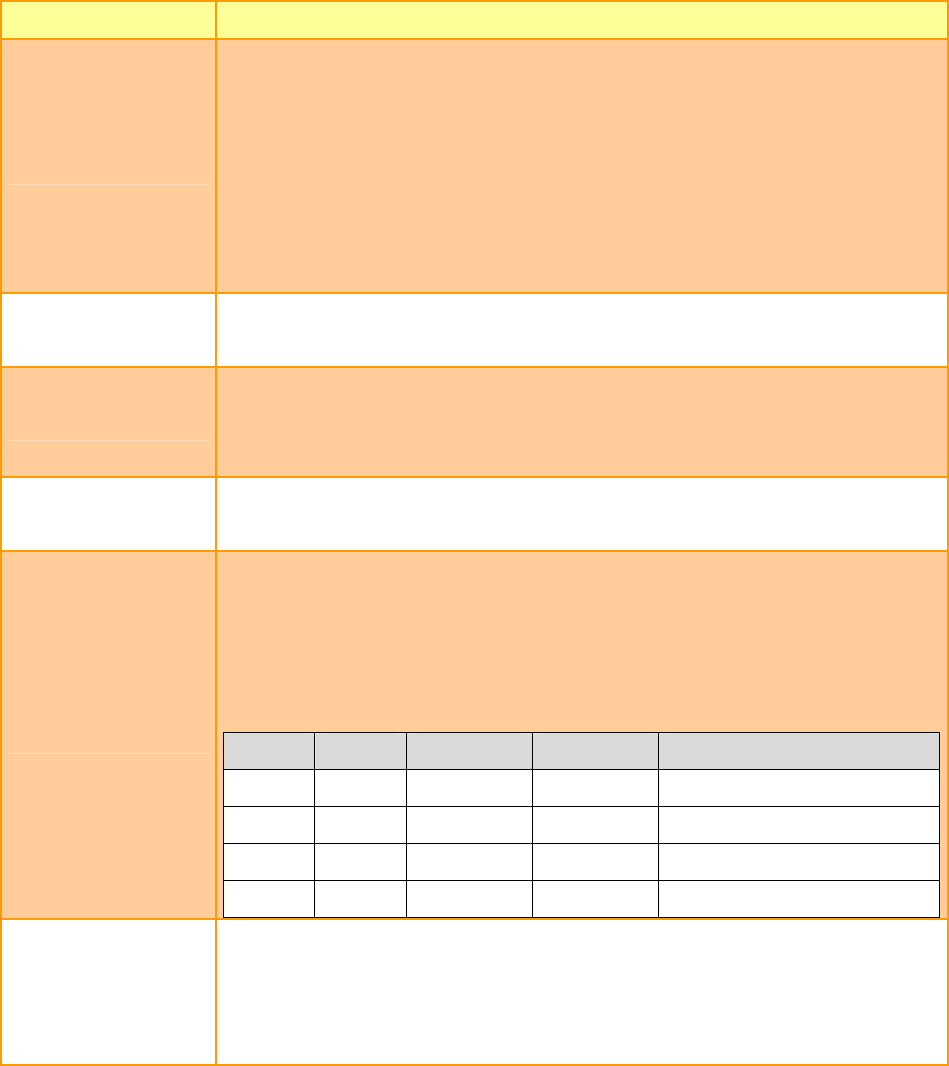
User’s Manual
ECM-3612 User’s Manual
43
2.3.15.1 Signal Description – PC/104+ Connecter (CN7, CN10)
Signal Signal Description
LA[23:17]
The address signals LA [23:17] define the selection of a 128KB section of
memory space within the 16MB address range of the 16-bit data bus. These
signals are active high. The validity of the MEMCS16# depends on these signals
only. These address lines are presented to the system with tri-state drivers. The
permanent master drives these lines except when an alternate master cycle
occurs; in this case, the temporary master drives these lines. The LA signals are
not defined for I/O accesses.
SA[19:0]
System address. Address lines for the first one Megabyte of memory. SA [9:0]
used for I/O addresses. SA0 is the least significant bit.
SBHE#
This signal is an active low signal, that indicates that a byte is being transferred
on the upper byte (SD [15:8)) of the 16 bit bus. All bus masters will drive this line
with a tri-state driver.
SD[15:8]
These signals are defined for the high order byte of the 16-bit data bus. Memory
or I/O transfers on this part of the bus are defined when SBHE# is active.
SD[7:0]
These signals are defined for the low order byte of the 16-bit data bus being the
only bus for 8 bit PC-AT/PC104 adapter boards. Memory or I/O transfers on this
part of the data bus are defined for 8-bit operations with even or odd addresses
and for 16-bit operations for odd addresses only. The signals SA0 and SBHE#
are used to define the data present on this bus:
SBHE# SA0 SD15-SD8 SD7-SD0 Action
0 0 ODD EVEN Word transfer
0 1 ODD ODD Byte transfer on SD15-SD8
1 0 - EVEN Byte transfer on SD7-SD0
1 1 - ODD Byte transfer on SD7
BALE
This is an active high signal used to latch valid addresses from the current bus
master on the falling edge of BALE. During DMA, refresh and alternate master
cycles, BALE is forced high for the duration of the transfer. BALE is driven by the
permanent master with a totem-pole driver.


















